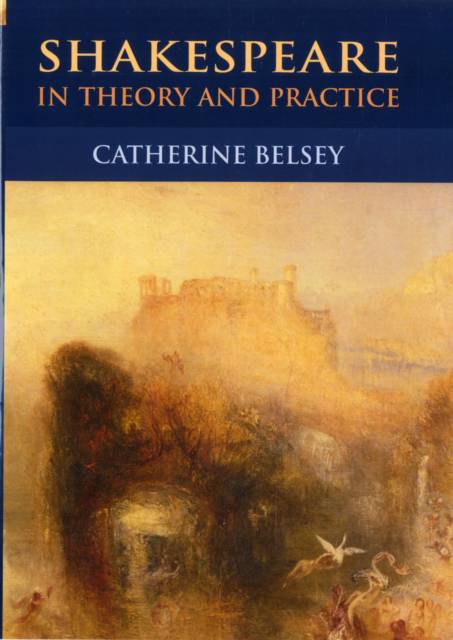
- Retrait gratuit dans votre magasin Club
- 7.000.000 titres dans notre catalogue
- Payer en toute sécurité
- Toujours un magasin près de chez vous
- Retrait gratuit dans votre magasin Club
- 7.000.000 titres dans notre catalogue
- Payer en toute sécurité
- Toujours un magasin près de chez vous
97,95 €
+ 195 points
Format
Description
Theory is valuable to the degree that it enables us to read differently: a nuanced approach shows that the most obvious interpretation is never the whole story. In these essays, brought together here for the first time, world-renowned critic Catherine Belsey puts theory to work in order to register Shakespeare's powers of seduction, together with his moment in history. Teasing out the meanings of the narrative poems, as well as some of the more familiar plays, Shakespeare in Theory and Practice demonstrates the possibilities of an attention to textuality that also draws on the archive. A reading of the Sonnets, written specially for this book, analyses their intricate and ambivalent inscription of desire.Belsey has been intimately involved with poststructuralism as it has emerged and developed in the English-speaking world. While the earliest essays published here are strongly influenced by Roland Barthes and Louis Althusser, both writers acknowledged a debt to the psychoanalytic account of representation as always unstable, designed at once to reveal and to repress, and Belsey's later work has come to owe more to Lacanian psychoanalysis, in addition to Derridean deconstruction. Between them, these essays trace the progress of theory in the course of three decades, while a new introduction offers a narrative and analytical overview, from a participant's perspective, of some of its key implications.Written with verve and conviction, this book shows how texts can be seen to offer access to the dissonances of the past when theory finds an outcome in practice.Key Features*A very special critic writing on the central figure of English literature*Provides an exemplary demonstration of poststructuralist theory at work*Pays particular attention to desire as a theme and as a component of interpretation*Provides close readings of the texts combining the historical and theoretical
Spécifications
Parties prenantes
- Auteur(s) :
- Editeur:
Contenu
- Nombre de pages :
- 224
- Langue:
- Anglais
Caractéristiques
- EAN:
- 9780748633012
- Date de parution :
- 22-05-08
- Format:
- Livre relié
- Format numérique:
- Genaaid
- Dimensions :
- 161 mm x 241 mm
- Poids :
- 521 g







